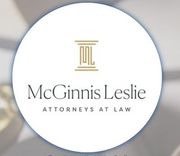7 Mistakes to Avoid If You're Thinking About Bankruptcy

With the help of a skilled attorney, bankruptcy can be a life-changing opportunity to free yourself from debt and start over. If you’re considering filing, here’s a list of common mistakes to avoid so the process doesn’t become more difficult than it needs to be.
What Not to Do Before Filing for Bankruptcy
1. Luxury Purchases
Under federal law, purchases of luxury goods or services from a single creditor valued in excess of $500 within 90 days of filing are nondischargeable in bankruptcy. As such, resist the temptation to make any last-minute splurge purchases before submitting your application.
2. Cash Advances
Cash advances taken on credit may also be nondischargeable under certain circumstances. Regardless of the number of creditors, if you take aggregate cash advances exceeding $750 within 70 days of filing, that excess amount will be deemed nondischargeable debt.
3. Preferential Debt Payments
If you have certain creditors whom you’d like to repay in full before filing, check with your attorney first. Under federal law, aggregate payments in excess of $600 to a single creditor are considered preferential payments if they’re made while you’re insolvent—meaning your debts exceed your assets—or within 90 days of filing, when you’re presumed insolvent as a matter of law. Within one year of filing for bankruptcy, creditors who receive preferential payments can be ordered to remit those payments to the trustee, a process commonly known as a clawback.
4. Insider Payments
Insider payments are also considered preferential and made subject to the clawback process. These include payments made to family members, friends, or business partners within one year of filing for bankruptcy.
5. Property Transfers for Less Than Value
You should also talk with an attorney if you’re thinking about transferring or selling any valuable property, particularly if you’re receiving anything less than the property’s fair market value in the exchange. Sales and transfers of valuable assets within six years of filing may be reversed if the trustee finds that the intent was to hinder, delay, or defraud creditors.
6. Drawing on Retirement Accounts
 If you’re thinking about drawing on your retirement accounts to pay off your creditors, talk with your attorney first. Most retirement accounts are protected from bankruptcy, and any withdrawals you make may cause you to incur nondischargeable tax liability.
If you’re thinking about drawing on your retirement accounts to pay off your creditors, talk with your attorney first. Most retirement accounts are protected from bankruptcy, and any withdrawals you make may cause you to incur nondischargeable tax liability.
7. Misrepresenting Your Assets
Finally, trustees have broad investigative powers, and the consequences of concealing assets from the court are severe. Be honest with your attorney about the full extent of your assets. Remember, your attorney has a fiduciary duty to represent your interests throughout the process, which includes exhausting all lawful means available to protect your assets from the bankruptcy trustee.
If you’ve considered bankruptcy, speak with a knowledgeable attorney and learn your options. McBrayer, McGinnis & Leslie, PLLC, is a full-service law firm that has been serving Greenup County, KY, since 1963 and has expanded into Kentucky, Ohio, and West Virginia. To learn more about their services, visit their website or call (606) 473-7303.
About the Business
Have a question? Ask the experts!
Send your question

